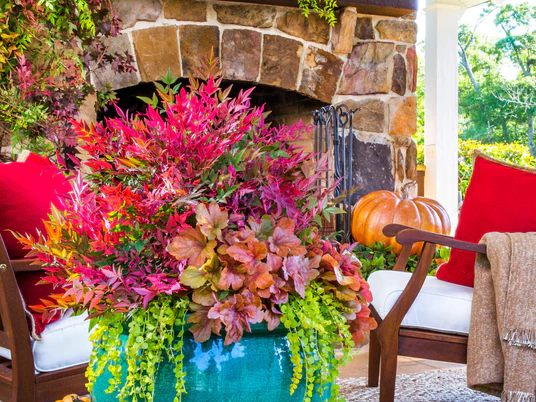Suntastic Peach Abelia
Suntastic Peach Abelia - 1.5 Gallon is backordered and will ship as soon as it is back in stock.
Description
Description
The Suntastic Peach Abelia is sure to stand as a marvel in the gardening world with its compact, semi-evergreen nature. The unique colors of the Peach Abelia are strongest in the cooler months. New foliage emerges as a warm shade of yellow and green as usual, but as the temperature drops the Peach begins to show! With vivid crimson stems and its warm apricot tones, the Suntastic Peach makes for a stellar garden addition.
Mature plants achieve a neatly compact structure, spanning dimensions of approximately 2 - 3′ x 3 - 5′, and maintain a graceful silhouette all year round. During the transition from mid-summer to fall, the shrub is adorned with fragrant white tubular blooms.
Whether you envision it as a standout specimen, clustered informally as a hedge, or even elegantly positioned within a container, the Suntastic Peach is the superior choice.
Due to their long blooming periods abelia shrubs are a great choice for the gardener that is looking to attract pollinators. Bees, butterflies and birds are all lovers of the tubular flowers and just can't get enough. Moreover, the low-maintenance nature of Abelias, combined with their resilience against pests and diseases, further accentuates their appeal to garden enthusiasts globally.
Suntastic Peach Abelia Shrub Care
Suntastic Peach Sunlight Requirements
Ideally, Abelia 'Peach' prefers full sun, which means it should receive at least 6 to 8 hours of direct sunlight per day. This ensures the plant produces abundant flowers and maintains its vibrant variegated foliage.
Abelias thrive in partial shade, especially in regions with intense summer heat. In such conditions, some afternoon shade can help protect the plant from excessive stress and potential sunburn.
When planting Abelia 'Peach' or any other variety, it's crucial to consider the specific sunlight conditions of your region and garden. In areas with mild summers, positioning the plant in a location that receives more sunlight might be ideal. In contrast, in hot climates, a location that offers some afternoon shade would be beneficial for the plant's health and appearance.
Pruning Suntastic Peach Abelia
Pruning the Suntastic Peach Abelia helps to maintain its compact form, encourage new growth, and improve the overall health and appearance of the plant. Here are some steps and tips for pruning this particular variety:
- When to Prune: The best time to prune Abelia 'Peach' is in late winter to early spring, before new growth begins. This timing ensures you don't remove the upcoming season's blooms.
- Deadheading: Throughout the blooming season, you can remove spent flowers to encourage continued blooming.
- Shape and Size: Begin by cutting out any dead or damaged branches. Then, shape the shrub according to your preference. You can reduce its size by cutting back up to one-third of the plant if necessary. Pruning can also help the plant maintain a more rounded and compact form.
Are Abelia Shrubs Cold Hardy?
Typically, this plant thrives in USDA hardiness zones 6 through 10.The Abelias semi-evergreen nature means that in milder winters or in the warmer end of its hardiness range, the Abelia retains much of its foliage, offering year-round interest. However, in the colder extremes of its zone range, some foliage may be shed.
Watering Abelia Shrubs
Newly planted Suntastic Peach Abelia needs regular watering to establish its root system. Water deeply once or twice a week, depending on the weather and soil type. Once established, the Abelia is drought-tolerant to some extent. However, it still benefits from regular watering, especially during dry spells. Deep watering every 1-2 weeks is usually sufficient.
While the Peach Abelia can handle the occasional drought, it's crucial to avoid letting the soil dry out completely for prolonged periods. At the same time, avoid overwatering, as soggy soil can lead to root rot. Well-draining soil helps mitigate this risk.
Care & Use
Care & Use
Spacing Recommendations
Spacing Recommendations
-
Scientific Name
-
Hardiness Zone6, 7, 8, 9, 10
-
Sun ExposureFull Sun
-
Evergreen or DeciduousEvergreen
-
FeaturesAromatic, Attracts Birds / Butterflies, Deer Resistant, Dwarf, Flowering, Sun Loving, Variegated, Winter / Fall Foliage Color
-
Feature ColorGreen, Multi-Color, Orange, Pink-Orange, Yellow
-
UsesContainer, Foundation Planting, Groundcover, Hedge, Mass Planting, Mixed Garden Bed
-
Water NeedsMedium
-
Bloom SeasonSpring, Summer
Growing Zones : 6, 7, 8, 9, and 10


Southern Living Plants





